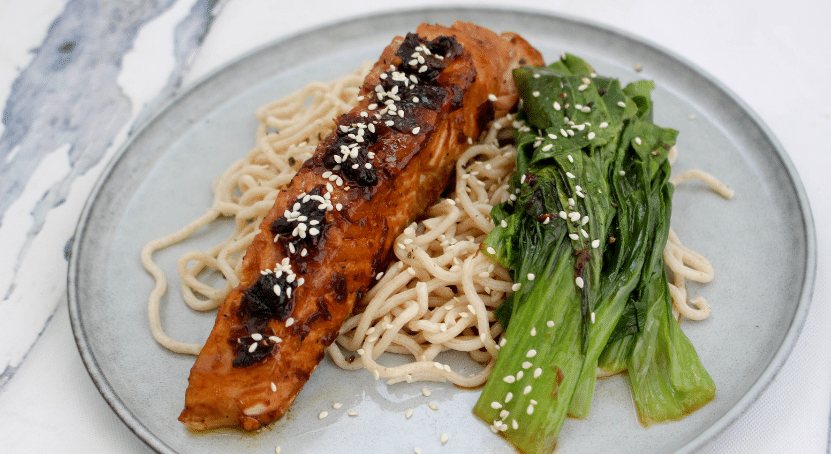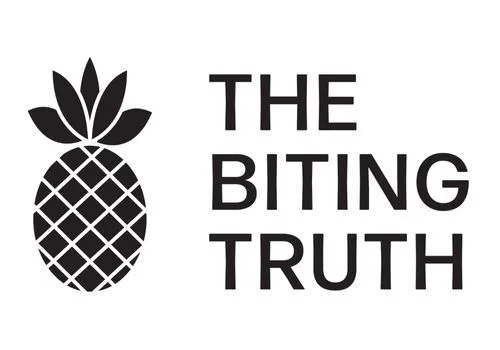
We’ve probably all experienced the way our mood can influence our food choices – just think about your eating habits in response to stress, boredom, loneliness or happiness.
But did you know that your food can actually influence your mood and mental health as well. That’s right – there is a strong link between what we eat and how we feel.
A poor diet can make you feel sluggish, have low energy levels, get sick more easily and have increased feelings of depression and anxiety. But we also know that a healthy diet can help boost mood, energy levels and improve overall mental health.
Although it can be tempting to get caught up in the research about one particular brain-boosting nutrient or food – it’s the consumption of a variety of brain-boosting foods and nutrients that makes a real difference.
Here are 5 brain boosting nutrients known to help improve brain health.
1. Omega 3 Fatty Acids
Omega 3 is a family of fats that are important for your overall health. The best food source of omega-3 is oily fish. Researchers have found that depression and other mood disorders appear to be less common in countries where people eat large amounts of fish and therefore scientists have long been investigating the potential link been mood disorders such as depression and omega 3 fatty acids. Scientists have found a few different ways that Omega 3 fatty acids might improve depression:
- Omega 3 fatty acids can easily travel through the brain cell membrane and interact with mood related molecules inside the brain
- Omega 3 fatty acids have anti-inflammatory actions that may help relieve depression
Where do you find omega-3 fatty acids?
- Fish (especially oily fish such as salmon, mackerel and sardines)
- Walnuts
- Flaxseeds
- Eggs
- Chia seeds
2. Magnesium
Magnesium is a mineral that you may have seen touted for its benefits for muscle relaxation, sports performance and sleep. Interestingly, studies have also found a link between magnesium consumption and improved mental health. One particular study found that a daily magnesium supplement led to a significant improvement in depression and anxiety and this improvement did not continue when the supplement was stopped.
Magnesium is found in a variety of foods – typically plant based food sources like grains, fruits and vegetables contain higher amounts than meat (another reason to boost the plant foods in your diet!).
These foods are particularly rich in magnesium:
- Seeds e.g. pumpkin, flax, sesame and sunflower
- Nuts e.g. brazil, cashews, almonds, peanuts
- Dark leafy green vegetables e.g. spinach, kale
- Cooked potato
- Avocado
- Bananas
- Fatty Fish e.g. mackerel, salmon
3. Probiotics
Probiotics are the healthy bugs that live inside your gut. You may have heard of the gut-brain axis, which links our gut bacteria and our brain. In short – our brains and our guts are in constant communication. Whilst the research is still in its infancy, scientists have found differences in the gut bacteria of depressed people compared to otherwise healthy individuals. A diet rich in probiotics helps to increase the richness and diversity of our gut bacteria and can therefore support mental health.
Food sources of probiotics are:
- Yoghurt
- Kefir
- Kombucha
- Sauerkraut
- Kimchi
- Tempeh
4. Zinc
Zinc is an important mineral, that is essential in growth and development and can help strengthen immunity. Studies have found that deficiencies in zinc in both men and women have also been associated with a greater incidence of depression.
The following foods are rich in zinc:
- Lean meats
- Oysters
- Wholegrains
- Seeds
5. Polyphenols
Polyphenols are natural compounds found in plant foods that play a role in brain health. Specifically, adding polyphenols to your diet might not only lift your mood, but could also slow down cognitive decline and reduce the risk of depression. Other benefits of more polyphenols include lower cholesterol, lower blood pressure and improved life span.
Incorporating more polyphenols into your diet is easy as they can be found in most fruits, nuts, vegetables, and legumes.
The following foods are rich in polyphenols:
- Berries (e.g. blueberries)
- Green tea
- Dark chocolate
- Flaxseed
- Nuts (e.g. hazelnut)
- Vegetables (e.g. black olives, artichokes)
Bottom Line
When it comes to mood and mental health, nutrition is a hugely powerful tool at your disposal.
